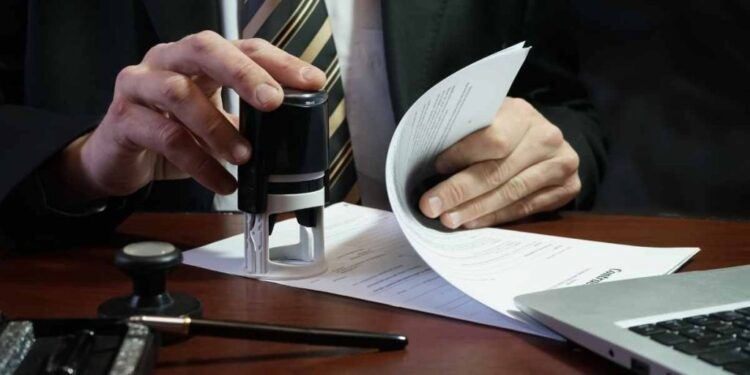Handling international documents can be tricky, especially when you need them notarised and apostilled. Understanding how these processes work in Gibraltar is essential for ensuring your documents are valid and accepted worldwide. Here’s a simple guide to help you understand notarisation and apostille in Gibraltar and why they are important.
What is Notarisation?
Notarisation involves a notary public, a legal expert who certifies that signatures on a document are genuine and that the document is complete and correct. In Gibraltar, notarisation is crucial for making sure your documents are officially recognised. Although some places might accept documents directly from a registrar, many require them to be notarised for legal purposes.
Why Should You Notarise Documents?
Notarising documents adds legal weight and is often required for important tasks like business contracts, property transactions, and international agreements. It also helps prevent fraud by confirming the identities of the signatories and the authenticity of the document. Many countries require notarised documents for legal matters, making this step essential for international use.

What is an Apostille?
An apostille is a certificate that proves a document has been notarised and is authentic. In Gibraltar, the Legalisation Office provides the apostille, confirming that the document meets the requirements of the Hague Convention. This makes it easier to use your document in other countries that are part of the Hague Convention.
Why Should You Apostille Documents?
Getting an apostille ensures that your notarised document is accepted in all Hague Convention countries, simplifying international transactions. It streamlines the process by eliminating the need for additional verification by foreign consulates or embassies. Apostilled documents are considered credible and reliable, making them more likely to be accepted abroad.
How to Notarise Documents in Gibraltar
To get your documents notarised, first choose a qualified notary public in Gibraltar. Make sure they are registered and authorised to perform notarisation. Octopus partners with several notaries in Gibraltar, which can make this process easier. Next, prepare your documents, ensuring they are complete. Visit the notary with valid identification, such as a passport or national ID. The notary will then verify your identity, witness your signature, and apply their official seal to the document.
How to Apostille Documents in Gibraltar
Once your document is notarised, you need to get it apostilled. Take the notarised document to the Legalisation Office in Gibraltar. Pay the required fee, which can vary, so check the latest rates online. The Legalisation Office will then attach the apostille certificate to your document, confirming its authenticity for international use.
Common Documents Requiring Notarisation and Apostille
Notarisation and apostille are often needed for various documents, including legal documents like contracts and agreements, educational certificates such as diplomas and transcripts, business documents like certificates of incorporation and power of attorney, and personal documents including birth and marriage certificates.
Benefits of Notarising and Apostilling Documents in Gibraltar
Notarising and apostilling documents ensures they meet international standards and are valid for use abroad. It adds credibility to your documents and simplifies legal processes, making it easier and faster to get your documents accepted in other countries.
For more information about notarisation and apostille services in Gibraltar, visit Octopus and check their business services page. Octopus provides expert assistance to ensure your documents are properly handled.













